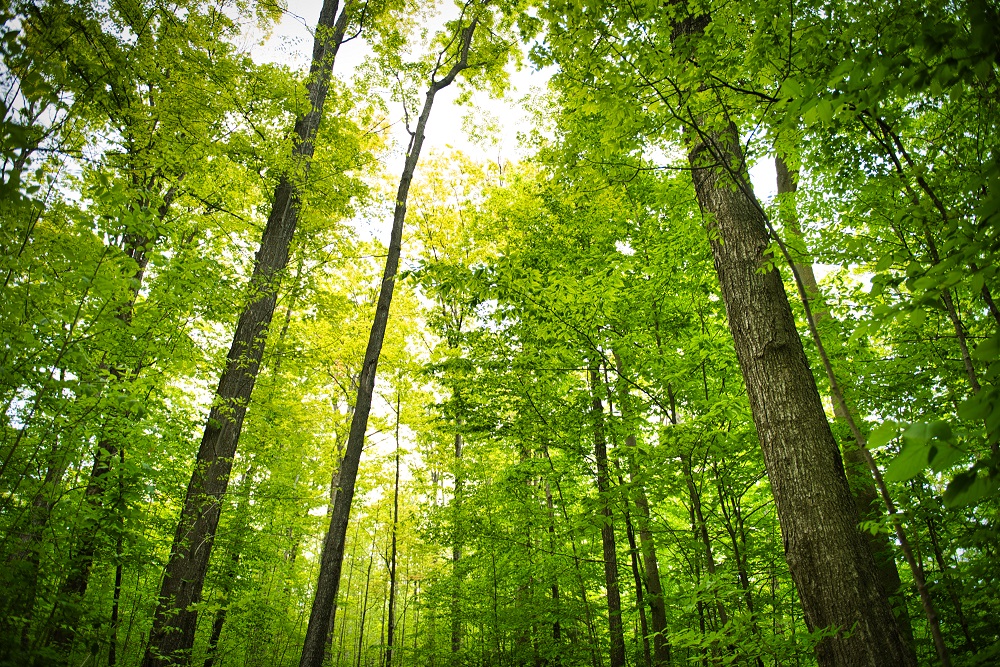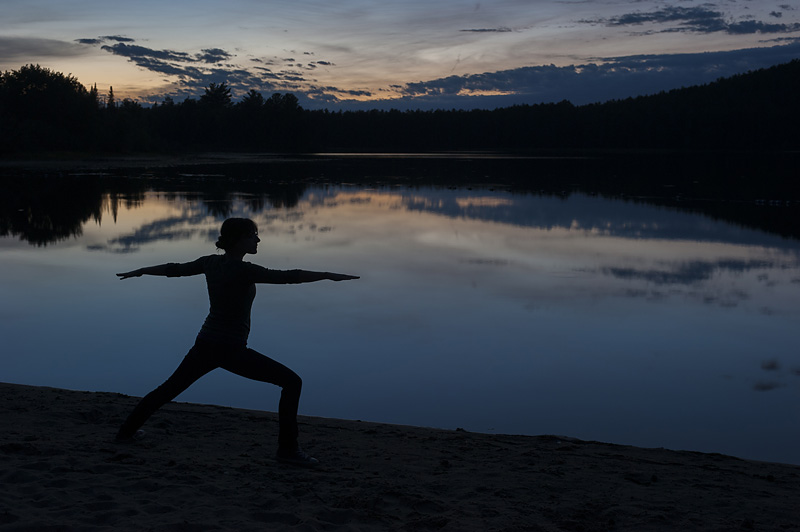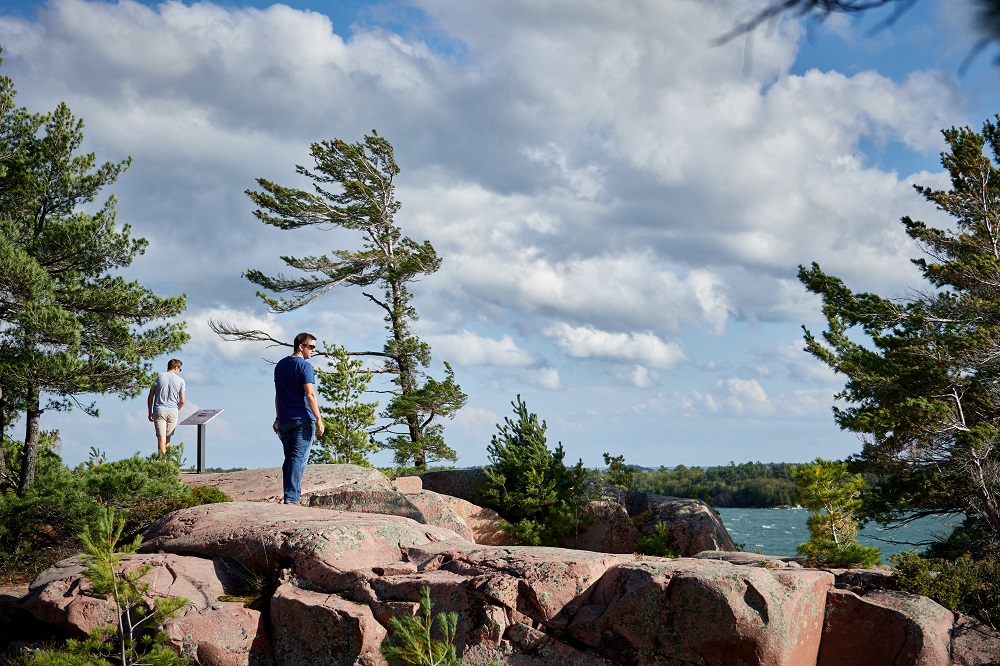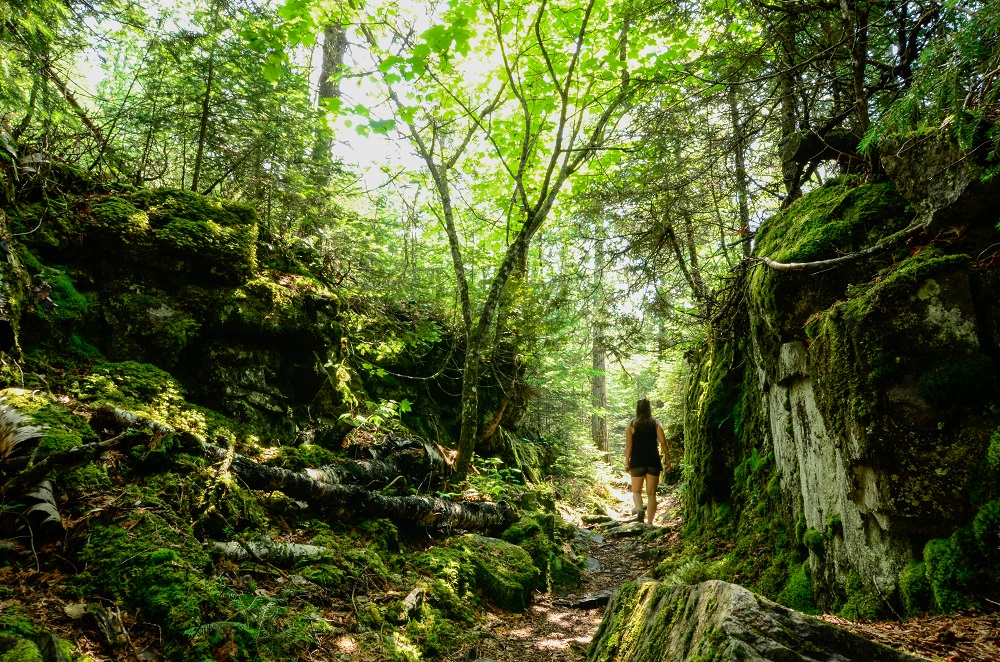In today’s post, Discovery Lead Tim Tully asks us a very important question.
What do parks mean to you?
Chances are this is a question that has recently taken on more importance.
One of the most apparent and acute needs in this period of physical isolation was a desperate desire to get out more. Specifically, to get out and be active in nature.
We don’t know exactly why it makes us feel better; it just does.
As it turns out, this is no coincidence, and we do know why. Spending time in a natural place like a park has measurable mental and physical health benefits.
Ontario Parks are a place of natural healing.
Time to get outside
Studies have shown that five minutes spent in a forest is like a free prescription for better health.
Breathing fresh air takes on new meaning when we learn that some of the components of that air are made up of secondary chemicals released by trees.
Defensive compounds like phytoncides, which have antifungal and antibacterial qualities, are a tree’s natural defense against insects. When inhaled by humans, studies in Japan have shown secondary chemicals can also stimulate and boost our immune systems.
We’ve all heard the cliché adjectives used to describe a natural space: peaceful, pastoral, tranquil, relaxing.
It turns out these words are reflections of bona fide health benefits including the lowering of blood pressure and the reduction of stress related hormones such as cortisol and adrenaline.
Studies have shown participants who engaged in forest activities had decreased scores for anxiety, depression, anger, confusion and fatigue.
Exercising or simply sitting in a forest mellows us out for the better!
Nature Deficit Disorder
In recent years we have also heard much about Nature Deficit Disorder (a non-medical condition), which has affected a generation of youth who rarely venture beyond their virtual reality to physically explore the natural world outside their door.
Research shows that a lack of connection with nature can lead to attention difficulties, a diminished use of the senses, obesity, and higher rates of illness – both emotional and physical.
The tragic overall impact of this syndrome is a lack of ecological literacy at this time in history when we are in desperate need of ecological understanding and appreciation.
A sweet escape
Have you ever found yourself happily declaring, “I’m going to leave it all behind”?
Your weekend or holiday aspirations were likely celebrating the need to separate from the everyday challenges and business of your work and home life.
Hyper-focused attention for long periods produces something called Directed Attention Fatigue. You feel mentally drained and need a break.

Spending time in nature allows us to declutter and gives the overactive brain a rest, enhancing focus and refreshes our levels of patience.
The isolation experienced by many has magnified the pressures of daily existence and prevented us from accessing ways to de-stress.
A camping trip could be just what the doctor ordered to get back in sync!
Think back
I hope your past camping experiences have helped sustain you in these meandering house-bound days.
Memories of a campfire with family, swimming, canoeing, a bike ride, walking a trail, seeing another animal in a place where it lives; it puts this human crisis in perspective.
We need nature’s vitality and constancy. Indeed, at some level it restores us and makes us feel whole again.
Who knows what future physical and mental health studies will reveal regarding the benefits of being in natural areas?
For now, it’s enough just to be out in your favourite provincial park. It’s not a panacea or cure-all, but it helps.
The Wendat are part of the Huron-Wendat Nation, an Indigenous nation whose current reserve is in Wendake, Quebec. Historically, the Wendat homeland was in southern Georgian Bay where they lived between the years 1200 and 1650. Contemporary European accounts from the early 1600s observed that the Wendat did not separate themselves from nature.
Nature permeated all aspects of their daily and spiritual life.
It informed their seasonal existence. As farming people, the Wendat recognized the fundamental truth that as people we are dependent and intimately intertwined with natural cycles.
The park where I work, Awenda, translates from the Wendat language as “voice” and “word.” With a minor twist it becomes Hawendio or “Creator.”
Awenda is aptly named.
We’re ready to return.
Coming to a park is of itself is an act of faith and hope. The positive experiences gained may well reconnect you and your family to a more meaningful and healthy future.
The next time you’re out walking in a forest cathedral or sheltered by the overarching forest canopy at your campsite, perhaps taking in a breathtaking shoreline view or admiring the behaviour of park wildlife, stop and pause for a moment.
Give thanks.
If our current situation has taught us one thing, it’s that we are indebted and dependent on this increasingly-fragile natural world.
We need provincial parks now more than ever.
Healthy Parks Healthy People Day is Friday July 17, 2020. Enjoy free day use at your local provincial park, and experience the health benefits of spending time in nature.







